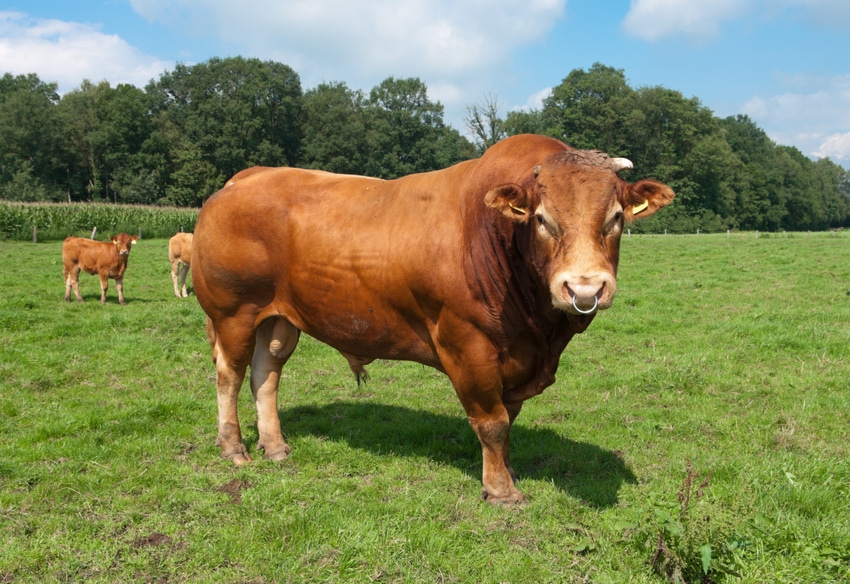University of Missouri heifer program to begin using genomic-enhanced EPDs in 2019.
August 15, 2018

New sire selection rules for Show-Me-Select (SMS) Replacement Heifers were established to improve reliable calving-ease genetics, according to an announcement from the University of Missouri.
“Bulls used in the heifer program will carry DNA-tested EPDs (expected progeny differences),” said Jared Decker, University of Missouri Extension geneticist.
The rules go into effect Feb. 1, 2019, and were set by the SMS governing board of farmers.
“DNA tests add reliability to EPDs for selecting herd bulls,” Decker said.
Bulls for pasture-breeding heifers will carry genomic-enhanced EPDs (GE EPDs). In the past, EPDs were based on pedigree and production tests. “Now, GE EPDs combine DNA, pedigree and production data into a single tool,” he said.
“DNA tests give results similar to 28 calving-ease production records,” Decker added. “More data boost confidence in a sire.”
With DNA tests, EPDs result from checking blood drops, tissue samples or hair root bulbs. Blood or tissue tests are preferred, Decker said. A one-time test adds data on young bulls equal to years of production testing. It lasts a lifetime.
Bulls bought before Feb. 1 will be grandfathered in, but those bulls must get GE EPDs by Feb. 1, 2020.
Seedstock producers advertising their bulls as “Show-Me-Select qualified” draw more bidders. Sires promoted as Show-Me-Select now must have GE EPDs.
According to Decker, SMS heifers gained fame for calving ease that cut death losses and labor at calving. Spring and fall SMS auctions across Missouri bring higher bids for calving-ease genetics.
Buyers pay premiums to lower assisted births with first-calf heifers. In the past, high death losses took out heifers entering the herd.
In recent SMS sales, heifers with genomic tests brought the highest premium prices, Decker said.
SMS was started 21 years ago by Dave Patterson, University of Missouri Extension reproduction specialist. Now, SMS brings buyers to Missouri for replacements in cow/calf herds.
Only Missouri produces SMS heifers, and herd owners enroll in a yearlong University of Missouri Extension education program. Regional livestock specialists guide the heifer program.
SMS teaches management as well as genetics. “The program goes beyond typical heifer development,” Decker said.
One example: Reproductive tract scores are taken on all heifers before breeding. Then pregnancy checks follow within 90 days after breeding starts.
Veterinarian-measured tract scores rank stages of puberty from one to five, Decker explained. Heifers slow to develop can be culled, which cuts costs, boosts conception rates and shortens calving seasons.
Bulls used for pasture breeding or artificial insemination breeding must meet required EPDs.
SMS heifers meet a goal of predictable results as two-year-olds, Decker said. First-calf heifers often have problems. Those difficult first births can lead to late rebreeding.
“Genomic testing adds EPD predictability and reliability. That cuts risks,” Decker said. “We know this adds cost to market registered bulls, but time is right for change.” Since 2010, the cost of a DNA test has fallen from $150 to $37.
“Seedstock producers provide this as more customer service,” Decker said. “There are many strategies for meeting the new rules.”
Herd owners join SMS through county extension centers. For more information on SMS, go to agebb.missouri.edu/select.
You May Also Like



